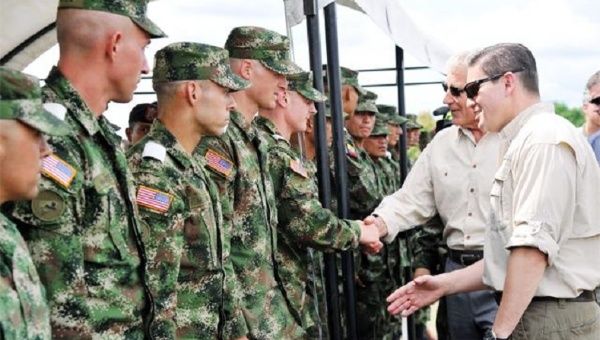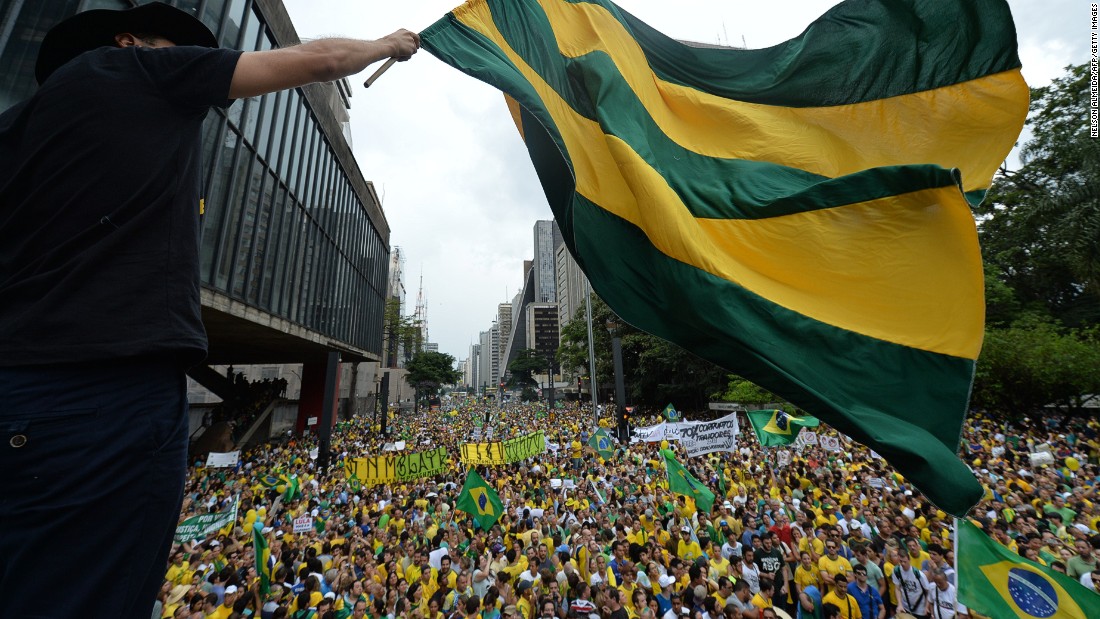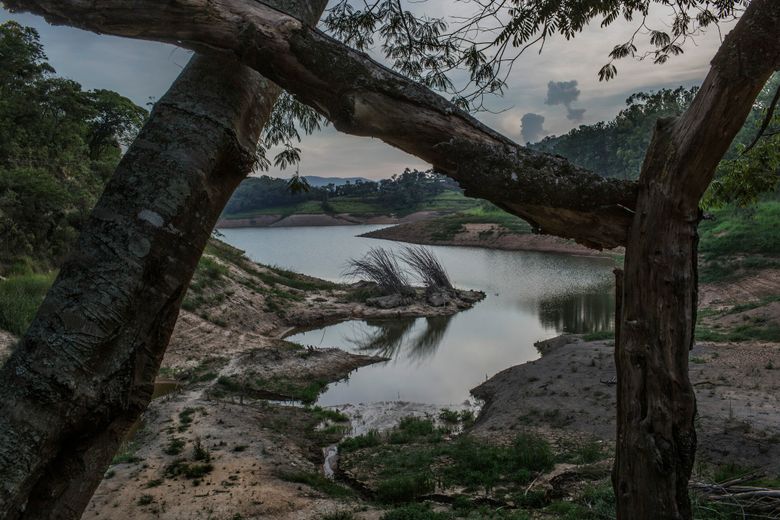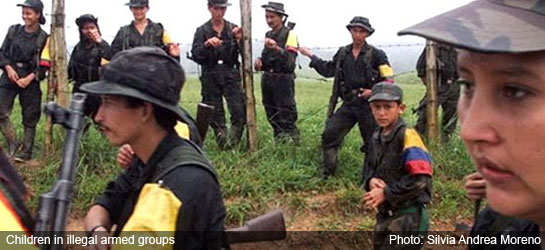By Delisa Morris
Impunity Watch Reporter, South America
BOGOTA, Colombia–Between 2003 and 2007, according to a recently released historic document on the Colombian conflict, US soldiers and military contractors sexually abused more than 54 children in Colombia. Allegedly, the suspects have not and will not be prosecuted due to immunity clauses in bilateral agreements.

The report, 800 pages in length, was commissioned by the Colombian government and rebel group FARC to establish the causes and violent agitators of the 50-year-long conflict between leftist rebels and the state while they are negotiating peace.
Officials hope that the document will help negotiators determine who is responsible for the 7 million victims or the armed conflict between leftist rebels and the state while they are negotiating peace.
One of the scholars that helped redact the historians’ report, Renan Vega of the Pedagogic University in Bogota, focused part of this historic document on the American military that has actively supported the Colombian state in its fight against drug trafficking and leftist rebel groups like the FARC.
“[T]here exists abundant information about the sexual violence, in absolute impunity thanks to the bilateral agreements and the diplomatic immunity of United States officials.”
One incident cited in the report was a 2004 case in the central Colombian town of Melgar where 53 underage girls were sexually abused by nearby stationed military contractors “who moreover filmed [the abuse] and sold the films as pornographic material.”
According to Colombian newspaper, El Tiempo, the victims of the sexual abuse practices were forced to flee the region after their families received death threats.
The case that has called the most attention was in 2007 when a 12-year-old girl was raped by a US Army sergeant and a former US military officer who was working in Melgar as a military contractor.
Colombian prosecutors established that the girl had been drugged and subsequently raped inside the military base by the officers. The prosecution officials were not allowed to arrest the suspected child rapists who were flown out of the country after the news broke.
The rape victim, her little sister and her mother were forced to flee to the city of Medellin as forces loyal to the suspects were threatening the family, the mother told Colombian television.
The special envoy will possibly have to deal with the role of the US military and its members in the alleged victimization of Colombians.
For more information, please see:
Colombia Reports – At least 54 Colombian girls sexually abused by immune US military: Report – 23 Mar. 2015
El Tiempo – Seven years of shameful impunity for girl raped in Melgar – 22 Mar. 2015
El Turbion – Impunity for soldiers Plan Colombia – 15 Feb. 2009
telesur – US Military Sexually Abused at Least 54 Colombian Children – 23 Mar. 2015



